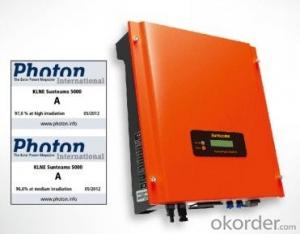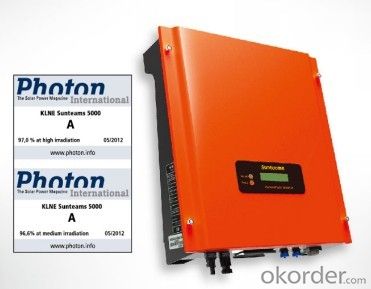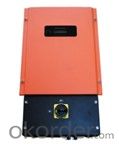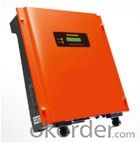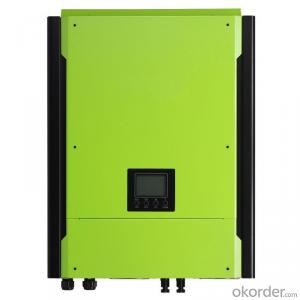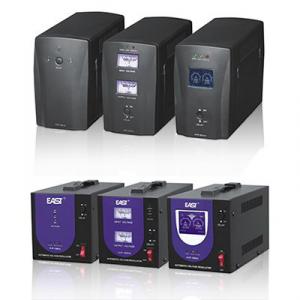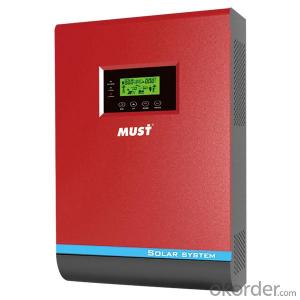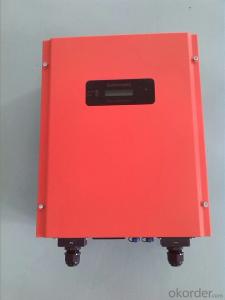Ryobi Solar Inverter Sunteams 4000 On Grid Inverter with WiFi US Standard
- Loading Port:
- Shanghai
- Payment Terms:
- TT OR LC
- Min Order Qty:
- -
- Supply Capability:
- 10000 set/month
OKorder Service Pledge
Quality Product, Order Online Tracking, Timely Delivery
OKorder Financial Service
Credit Rating, Credit Services, Credit Purchasing
You Might Also Like
Sunteams 1500,2000,2500,3000,3600,4000,4600,5000
Sunteams US 1500,2000,2500,3000,3600,4000,4600,5000
1MPPT, single phase
IP 65
50Hz & 60 Hz
with Plug in wifi/ wifi box
with wire box/ without wire box
UL certified
■ For countries with UL certification (UL 1741 / IEEE 1547)
■ For countries with UL certification (UL 1741 / IEEE 1547)
Efficient
■ The CEC efficiency of the inverter can reach 95.0 %-97.5 %
■ Transformerless desi
■ The CEC efficiency of the inverter can reach 95.0 %-97.5 %
■ Transformerless desi
Simple
■ ‘Plug and play’connection for easy installation and maintenance
■ Designed for hanging with simple and easy installation
■ Fanless cooling concept
■ ‘Plug and play’connection for easy installation and maintenance
■ Designed for hanging with simple and easy installation
■ Fanless cooling concept
Communicative
■ RS232/RS485 interfaces as standard
■ Optional Bluetooth technology
■ RS232/RS485 interfaces as standard
■ Optional Bluetooth technology
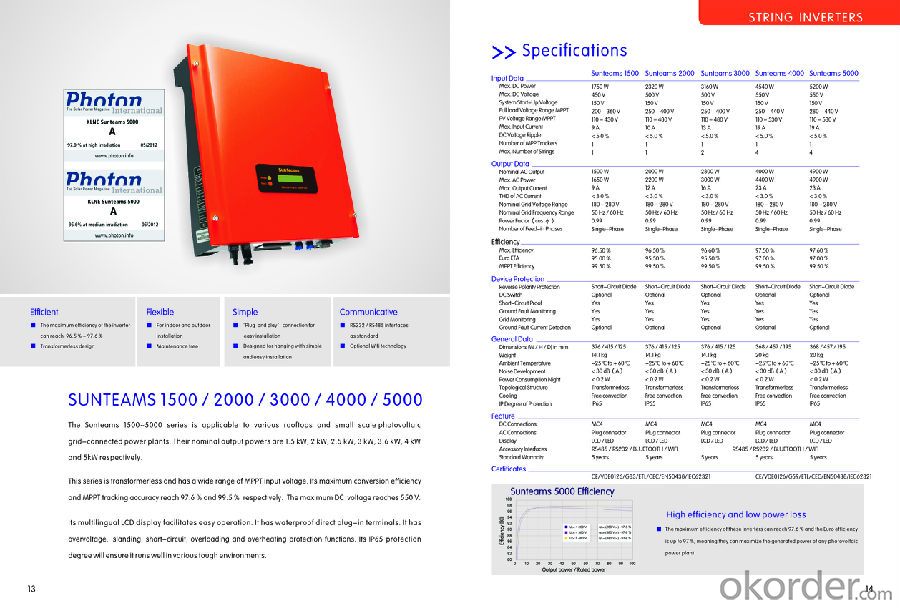
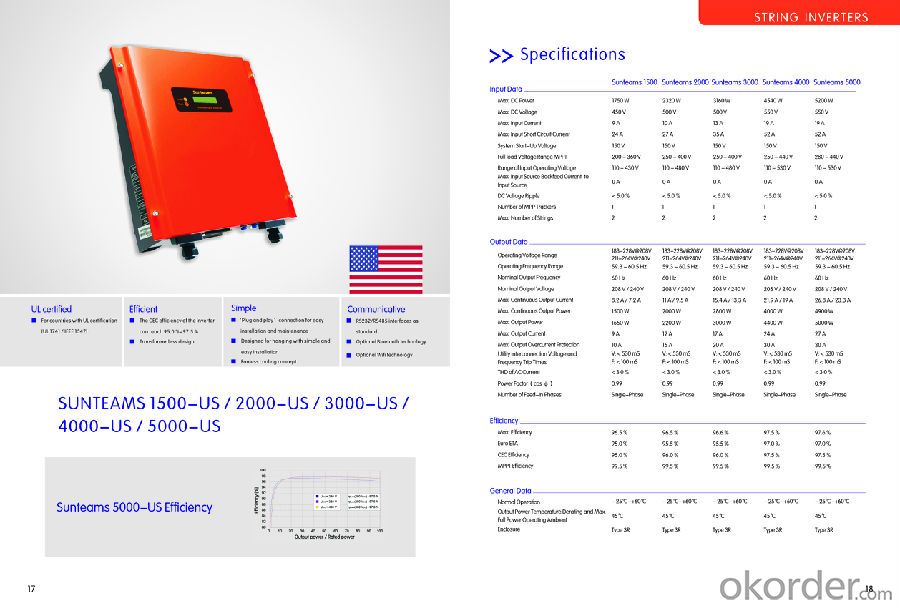
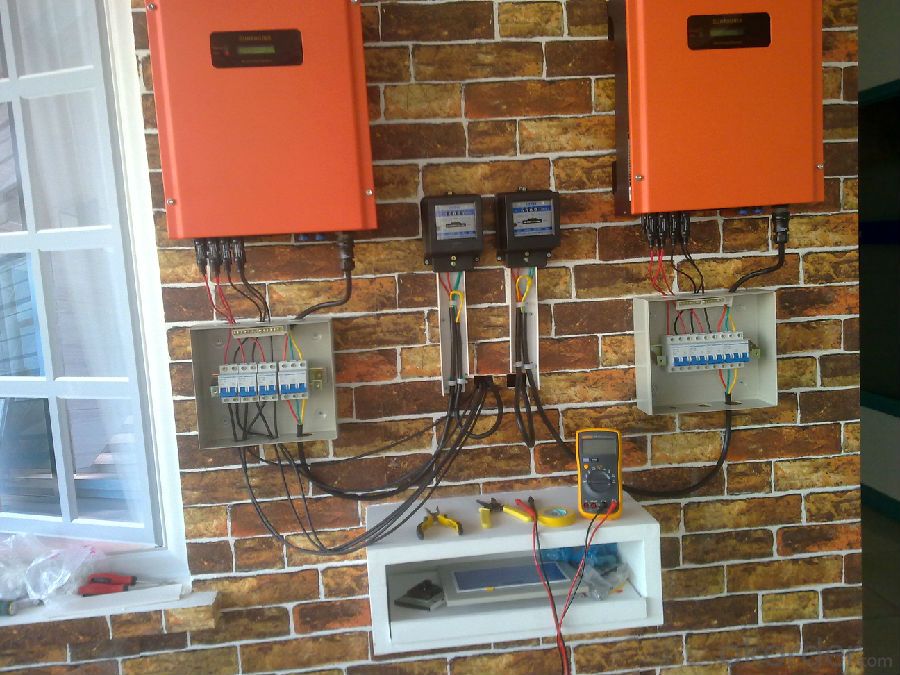
- Q: Is the grid side of the grid and the inverter?
- Off-grid system power transmission sequence: photovoltaic panels> relays> inverters> relays> electricity load;
- Q: Can a solar inverter be used with solar-powered streetlights?
- Yes, a solar inverter can be used with solar-powered streetlights. A solar inverter is responsible for converting the direct current (DC) produced by solar panels into alternating current (AC) that can be used to power various electrical devices, including streetlights. By integrating a solar inverter into the system, solar-powered streetlights can efficiently utilize the energy captured from the sun to illuminate the streets.
- Q: Can a solar inverter be used in a three-phase power system?
- Yes, a solar inverter can be used in a three-phase power system. In fact, three-phase solar inverters are commonly used in commercial and industrial applications where the power demand is higher. These inverters are designed to convert the direct current (DC) generated by solar panels into alternating current (AC) that is compatible with a three-phase power system.
- Q: Can a solar inverter be used in a solar-powered desalination system?
- Yes, a solar inverter can be used in a solar-powered desalination system. A solar inverter is responsible for converting the direct current (DC) electricity generated by solar panels into alternating current (AC) electricity, which is required for the operation of the desalination system. By utilizing a solar inverter, the system can effectively harness solar energy and convert it into usable power for the desalination process.
- Q: Can a solar inverter be used with solar-powered water purification systems?
- Yes, a solar inverter can be used with solar-powered water purification systems. A solar inverter is responsible for converting the direct current (DC) produced by solar panels into alternating current (AC) that can be used to power electrical devices. In the case of solar-powered water purification systems, the solar panels generate electricity through sunlight, which is then converted by the solar inverter to power the purification system, ensuring clean and safe drinking water.
- Q: Can a solar inverter be used with solar concentrators?
- Yes, a solar inverter can be used with solar concentrators. Solar concentrators focus sunlight onto a smaller area, increasing the intensity of the light. The solar inverter's primary function is to convert the DC power generated by the solar panels into AC power suitable for use in homes or businesses. Therefore, it can still be used to convert the enhanced DC power generated by solar concentrators into usable AC power.
- Q: Can a solar inverter be used in a remote location without access to the grid?
- No, a solar inverter cannot be used in a remote location without access to the grid. Solar inverters convert DC power generated by solar panels into AC power, which is suitable for use in homes and businesses connected to the electrical grid. Without access to the grid, there is no way to utilize the output of a solar inverter.
- Q: Can a solar inverter be used in a smart grid system?
- Yes, a solar inverter can be used in a smart grid system. A solar inverter is an essential component that converts the direct current (DC) generated by solar panels into alternating current (AC) that can be used to power electrical devices. In a smart grid system, the solar inverter plays a crucial role in integrating renewable energy sources, such as solar power, with the grid. It allows for bidirectional flow of electricity, enabling excess energy generated by solar panels to be fed back into the grid and distributed to other consumers. Additionally, advanced smart grid systems can incorporate communication and control capabilities into solar inverters, enabling real-time monitoring, optimized energy management, and grid stability enhancement.
- Q: How does a solar inverter handle voltage fluctuations?
- A solar inverter handles voltage fluctuations by continuously monitoring the incoming solar power and adjusting its output voltage accordingly. It uses advanced electronics and control algorithms to ensure that the output voltage remains stable and within a specified range, regardless of variations in the input voltage. This allows it to provide a consistent and safe supply of electricity to connected devices, even in the presence of voltage fluctuations.
- Q: How do you choose the right size of solar inverter for a system?
- To choose the right size of solar inverter for a system, several factors need to be considered. Firstly, you should determine the total capacity of the solar panels in the system. The inverter's maximum input power rating should be equal to or slightly higher than the total capacity of the panels. Additionally, the inverter's voltage rating should match the system's voltage requirements. It is also crucial to consider the inverter's efficiency, as a higher efficiency rating will ensure better conversion of solar energy into electricity. Lastly, it is advisable to consult a professional or use online calculators to accurately determine the appropriate size of the inverter based on the specific needs and requirements of the system.
Send your message to us
Ryobi Solar Inverter Sunteams 4000 On Grid Inverter with WiFi US Standard
- Loading Port:
- Shanghai
- Payment Terms:
- TT OR LC
- Min Order Qty:
- -
- Supply Capability:
- 10000 set/month
OKorder Service Pledge
Quality Product, Order Online Tracking, Timely Delivery
OKorder Financial Service
Credit Rating, Credit Services, Credit Purchasing
Similar products
Hot products
Hot Searches
Related keywords
